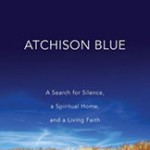 In my reading one of my beloved teachers-from-books, Joyce Rupp, I find these words in her Names for God:
In my reading one of my beloved teachers-from-books, Joyce Rupp, I find these words in her Names for God:
You never stop teaching us through the story of our lives and the heritage of our world (entry for Sept. 16).
This is the underlying gift of Jeanne Murray Walker’s new book The Geography of Memory: A Pilgrimage Through Alzheimer’s. Although the author’s journey with her mother’s Alzheimer’s disease over a decade is the presenting feature of the book–in title, in introduction, in narrative– I found this book to be broader in the teachings and examples it offered. Walker’s slow epiphany about the pilgrimage of her life begins as she becomes aware that her mother is becoming ill, with the high probability that she has Alzheimer’s. One of the uncharted waters of living is anticipating, then walking through the loss to death of our parents. Each journey of loss is particular and carries with it pain, if not for what was, for what was not. Walker’s journey with its length and geographical spread opens up a space in her that is vaster than most, because it becomes the reflecting crucible in which she can sort out the pieces of her life, many of which she chose to leave behind long ago. That soul-mapping opportunity often comes to us with a critical moment or at a “certain age.” That Walker chooses to seize that moment, as painful as it is, to remember, to reflect, to confess and to savor, while at the same time faithfully attending in whatever way she can to her mother’s needs, which are often baffling, opaque and irrational, is the hope that she brings to the reader who accompanies her on this journey.
Some say that the most complicated of all family dyads is the mother-daughter connection. Each one is fraught with genuine need and projected wishes, the potential for great delight and great disappointment, the possibilities of great friendship and/or competition. To travel the distance between being borne and nurtured by a mother, through all of the vagaries of separation and bonding, to becoming the caretaker and nurturer of the one who bore you is a tricky process. Jeanne Murray Walker is candid as she takes out each location and event that she recalls to examine it, to see where it fits in her life map. She sees connections and disconnects, examines choice to go away from her mother in a road not taken, and allows each of those reflections to shape her real time role as caregiver to her mother commuting from a distance. This process leads her to a more complete picture of who her mother really was, beyond what can be seen through the eyes of a daughter, and she becomes aware of more of her own self. None of this is quick and easy, just redemptive. It leads her to gratitude and resolution.
The on-site caregiver of Walker’s mother is her sister, another relationship which needs reflection. As one who was a primary caregiver to an aging parent without the assistance of close-by siblings. I recognize the ways in which these relationships can be fraught as well. We bring our childhood bonding and rivalries in to adulthood, sometimes without realizing how much the interior terrain for each of us has changed. Now in the pressure cooker of family need, those scenarios must be re-assessed. I think of Jacob and Esau, of Joseph and his brothers. Walker and her sister have chosen different lives, but the call of the moment is to care for their mother with grace and love. By example these sisters challenge the reader to bring their own sibling relationships under the eye of the Holy in service to a loved one.
Walker’s journey of Spirit is more tacit than overt in her telling the story. She has found a spiritual home in a tradition quite different than that of her origin or that of her mother and sister. Yet she awakens to the way that Spirit undergirds the entire process. Speaking of her mother, sister and herself, she recognized that they shared and practiced these spiritual disciplines:
Among them I count prayer, hospitality, patience, forgiveness, humor, imagination, meditation, silence, empathy and letting go. (p. xx)
I am grateful for this one whose story honestly, quietly, but deeply demonstrates in her book the movement of Spirit for any present crisis, for redeeming all past locations, and for a future of hope.
















